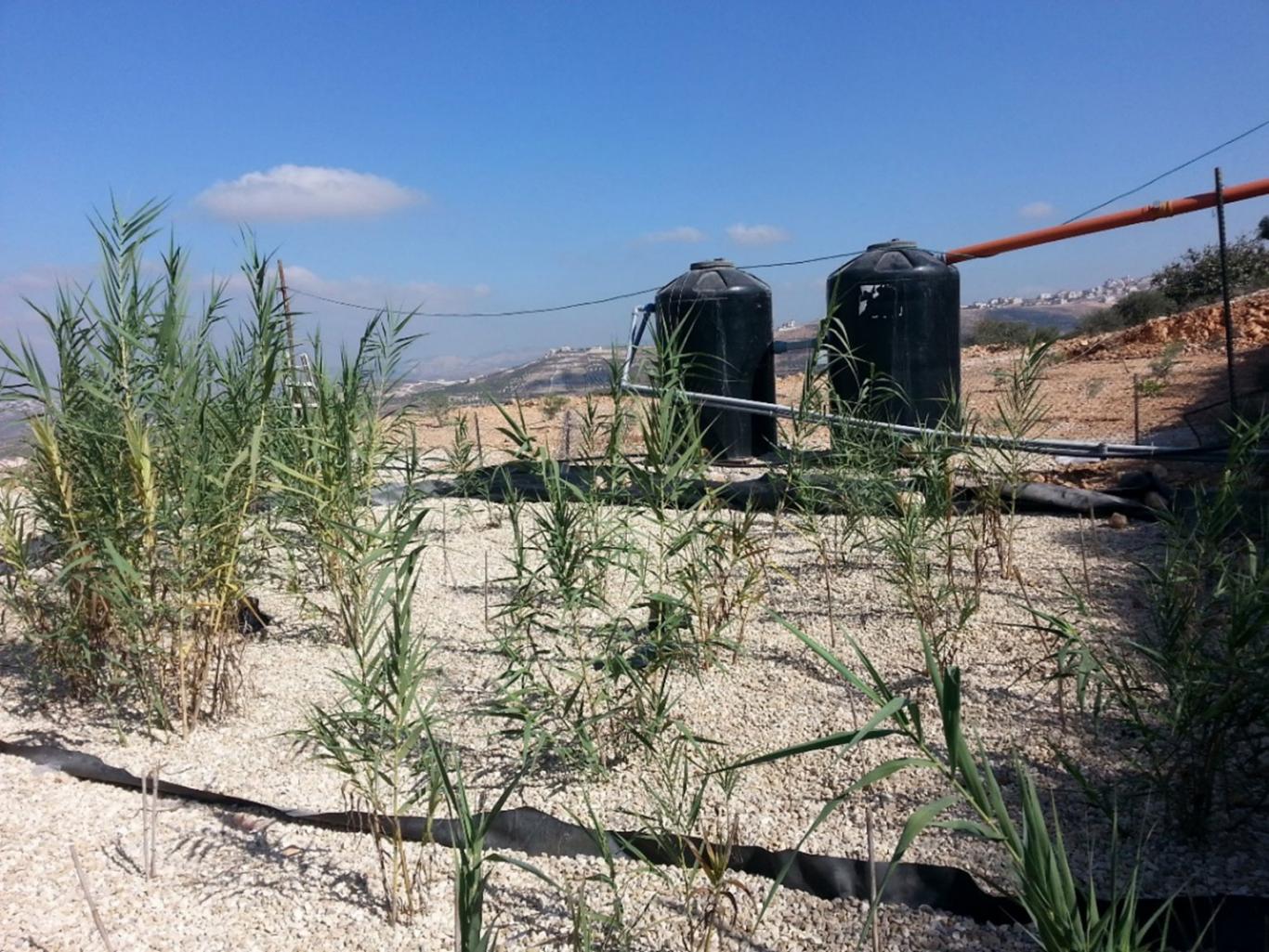Water scarcity is an on-going issue in the Middle East region. This situation has brought in the reuse of effluents for irrigation. While this practice is very useful from the water saving perspective, it raises many issues of water safety. These issues are of special concerns in small, rural communities, such as many communities in Palestine and Jordan.

To-date, most of the wastewater treatment plants (WWTPs) used in the Middle East region are centralized facilities. While those facilities tend to treat the wastewater efficiently, they are very expensive to build and operate and require highly trained personal to operate, and, in the case of rural communities, long distance transportation of wastewater. This leads to a situation where many rural communities use untreated wastewater for irrigation and/or ejection to nearby rivers, with possible severe environmental and health effects. The overall aim of the current project is to establish the use constructed wetlands (CW) combined with UV disinfection systems as a possible WWTP solution for rural communities offering a low-cost and low-maintenance option for removal of contaminants and pathogenic bacteria the water allowing for their use in agriculture irrigation.
Special attention will be given to the study of the affectivity of the CW in the removal of emerging contaminants – EDCs, and to testing the importance of the plants in the CW process in general, and assessment of different plant species, especially such with high agricultural value and their possible use in animal feeding, in particular.
The overall aim of the current project is to improve the environmental conditions through the introduction of a low-cost and safe solution for rural sanitation and obtaining effluents with high quality for reuse in the Middle East.
Towards this end, we have identified the following specific objectives:
- Develop wastewater technologies suitable to treat wastewater from rural communities in ME regions and ascertain the conditions needed for the use of CW under the special ME conditions – in different scale from small communities to single household.
- Establish the conditions for the use of UV systems for disinfection of CW effluent under real life conditions – facilitating safer water reuse.
- Study the role of plants in the CW wastewater treatment process by comparing different systems with different (or without) plants – on the same wastewater.
- Test plant species with high agriculture and economical value (e.g. corn, sorghum) for their applicability in the CW – their effectiveness in water treatment and possible safety issue in their later use – i.e. bio-accumulation of chemical and microbial water contaminants in the plants.
- Test the affectivity of CW in removal of emerging water contaminants (EDCs). (6) Build model CW-UV systems.
- Use of the above systems for education and training of local operators and post graduate professionals and for outreach programs to facilitate the use of effluent in the PA and in Jordan.
Towards this end, we have identified three specific objectives:
- Identification of aromatic plants suitable for irrigation with treated effluents: In a three-year field study, to test the cumulative effects of the local treated effluents available in Palestine, on growth and development of nine aromatic crop plants.
- Evaluation of the effect of the effluents on yield production: To quantify the effect of the effluents on quantity and quality of essential oil yield, and biomass production of the aromatic crops tested.
- Optimization of agro-techniques for utilization of effluents for cultivation of aromatic plants: To begin optimization of fertilization regimes for cultivation of aromatic plants with effluents.
